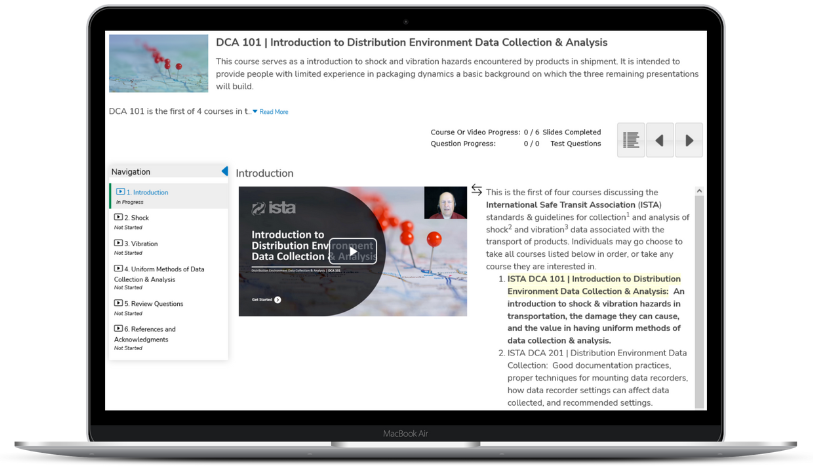Data Analysis Guidelines: Shock Impact Drop Data
This document details various approaches for analyzing shock and drop data generated by packaged product handling (manual and mechanical) and transport vehicles for use within ISTA testing. The objective is to translate the collected shock and drop data into meaningful laboratory tests, which reasonably and efficiently simulate real-world transportation shock and drop. The methods included in this document range from the more common to alternative approaches that are more theoretical.
Data Analysis Guidelines: Thermal Data
This guidance document defines how to create risk-based OQ test profiles based on such a profiles dataset. The methodology outlined in document (a) contains two parts:
- Ensuring that the OQ profiles have sufficient overall thermal challenge. This is accomplished by using the QT(Min) and QT(Max) metrics.
- Ensuring that the OQ profiles contain appropriate thermal spikes & dips.
Data Analysis Guidelines: Vehicle Vibration Data
This document details a recommended approach in which ISTA analyzes vibration data generated by transport vehicles for use within ISTA testing. The objective is to translate the collected vibration data into accurate and representative Power Spectral Density (PSD) information that can be used in creating laboratory vibration tests, which reasonably and efficiently simulate real-world transportation vibrations.
Data Collection Standards
This document details ISTA’s requirements for measuring atmospheric conditions, shocks/impacts and drops and vibrations generated by transport vehicles occurring during distribution. The objective is to collect data that can be used in creating laboratory tests that reasonably and efficiently simulate real-world transportation conditions.
Online Learning Courses: Distribution Environment Data Collection & Analysis
NEW: ISTA's Distribution Environment Data Collection & Analysis courses provide an in-depth discussion on the collection and analysis of shock & vibration data associated with the transport of products. The course modules include a pre-recorded video presentation and supporting text that provides a dynamic self-paced learning experience.
